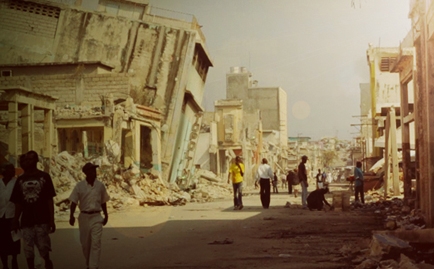Mitch Albom is the best-selling author of Tuesdays with Morrie and The Five People You Meet in Heaven. We talked with him about his most recent book, Have a Little Faith, as well as what inspires the spiritual messages of his writing and where he goes to find hope.
Spiritual themes permeate all your books, but in your own life, in the day to day, how do you see faith working? How do you keep faith in the mundane?
Sometimes people talk about faith only in big, broad, gigantic strokes, like deep prayer when somebody is sick, and non-stop praying when someone loses a job. But I think faith is much more of an everyday thing. I think the principles of your faith—[of] Christianity—taking care of the least of us … what a beautiful phrase that is. And that doesn’t mean you necessarily have to spend every minute of your day like Mother Teresa, but you can be walking through the town you live in, and see someone who is having a hard time. It’s the difference between stopping and giving them some money, or talking to them, and not, which is what most people do. In the same way, something good happens to you, someone gives you a raise, or throws you a party, or you have good friends, and you take a moment, and look up, and you say: “Thank you, God, for what I’ve been given here. This is a blessing.”
That’s a small, little act of faith. They’re not always these big, huge, sweeping [things].
What’s the message you hope people will take from your new book, Have a Little Faith?
About nine years ago, my childhood rabbi asked me if I would do his eulogy. I said, “Well, I’m overwhelmed by the request, but if you want me to do the eulogy, I need to get to know you better as a human being.” We ended up having all these really long, interesting visits and theological discussions, and I got to see a man of God behind the scenes.
While that was happening, I was also getting to know a pastor here in Detroit, where I live. He had grown up very poor, became a criminal, a thief, a prisoner, a drug dealer and a drug addict. And then he turned his life over to Jesus just after his 30th birthday. And now he runs this church here in Detroit, which is very, very poor and dilapidated.
And I thought, “This is so interesting, because these are two very different people—a white man, a black man, a Jew, a Christian, suburban well-to-do, and inner-city poverty. And yet, they are both the same in one very critical area of faith. Their faith is what guides them.” Faith was guiding the rabbi as he was approaching his death, and faith was guiding the pastor as he was trying to keep his church from collapsing. And I thought that this is a very simple story for me to be moving back and forth between these two men, but it’s got a lot of bigger ramifications for people to learn from.
You talk about a lot of people from different religions—people who would quickly and easily disagree with each other. How do you reconcile that?
The best way I can answer that is with a story I wrote about in [Have a Little Faith]. Toward the end of the rabbi’s life, he made a joke about how he asked God to give me many more years on earth, [so] when we saw each other again, he and I would have a lot to talk about. And I said, “ Do you really think we’re going to see each other again?” And he said, “Well, don’t you?” And I said, “Well, I don’t think I’m going to the same level you’re going to.” And he said, “What do you mean?” And I said, “You’re a man of God.” And he looked at me very sweetly, and said: “You’re a man of God, too. Everyone is.”
When he said that, you could have knocked me over with a brick, because for a 90-year-old man, who had been nothing but righteous, and pious, and a religious leader his whole life, to put himself on the same level as me, that was humbling. I think it also showed what true faith is—that everyone you see is a man of God, a woman of God, a child of God. And if you look at everyone on the planet that way, and say, “These are all God’s creations, and ultimately, we all came from God’s creation.” If people absorbed that sort of philosophy, we’d be a lot nicer to one another, and the differences we have would be much smaller than the similarities.
In the midst of a world that can seem very hopeless, you still write about hope. What drives you to that? What gives you that hope?
If you lived where I lived, you’d be the same way. In Detroit, [we have] 30 percent unemployment and almost 100,000 abandoned buildings. If you don’t get up every morning with hope, you’re going to have a hard time getting up in the morning. There’s nothing but sad news around here. Hope is what gets you through. Hope is faith, to me. They’re intertwined. You have to believe things can get better, and you have to believe there is a bigger force at work.
This article originally appeared in Neue magazine.





















